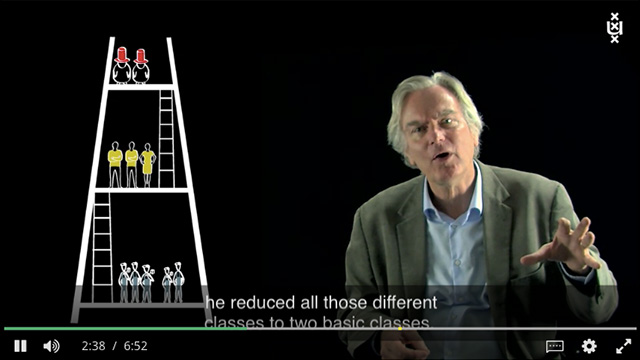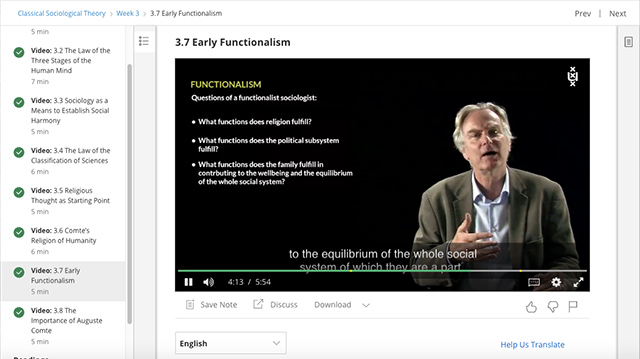“Classical Sociological Theory” on Coursera: Review
Affiliate Disclaimer
This post may include affiliate links, meaning we earn a commission when you purchase a course or subscribe to a service using our links. However, all opinions are the author's.

A few weeks before my first semester of college, I tried to complete the majority of this course. I wanted to prepare by learning the basics of sociology, since it was about to be my major. Now, a few semesters and college classes later, I can attest this actually served as good preparation. And the best part is that it’s free!
Having grown up accustomed to taking online courses, the structure felt seamless and I was able to familiarize myself with sociology a bit more. Based off personal experience, I would definitely recommend to anyone who’s considering it.
But what is the course about?
This online sociology course focuses mostly on the major contributors to early sociology. It’s made up of weekly sections focused on one famous sociologist per week, ranging from Alexis de Tocqueville to Max Weber. At the beginning of the course you might not recognize these names, but that all changes by the time you finish the course. That’s what happened to me!
The weeks go somewhat like this:
- Week 1: Introduction
- Week 2: Bernard Mandeville and Adam Smith
- Week 3: Auguste Comte
- Week 4: Alexis de Tocqueville
- Week 5: Karl Marx
- Week 6: Émile Durkheim
- Week 7: Max Weber
- Week 8: Norbert Elias
The great thing about the course is that it’s not only about the people (who are the topic of the lesson). In fact, there’s a lot of insight into what sociology is as a whole. It is organized according to each sociologist being discussed, but each lecture is packed with history, theory, and some of the popular vocabulary used in sociology: all explained neatly for everyone to understand.

What does the work for each week look like?
Usually, each weekly module contains the following:
- Approximately 8 videos, of 5-7 minutes each. There, the professor explores different topics, relating to each sociologist. All the mini-lectures build on each other (so it’s best to watch in order).
- Suggested readings. Sometimes they’re chapters from books, and sometimes they’re links that take you to articles and other readings.
- A quiz, usually of 10-11 questions. In general, the questions are mostly about the videos in the course. But, there are also some questions that ask about the suggested readings.
What do the students think about it?
“This is definitely one of the best MOOCs [online courses] on Sociology I have ever taken, and I am new to online learning so you can imagine! The professor is funny, clear and passionate about his work, his lectures and his students!! I couldn’t believe this MOOC was over so quickly, as I couldn’t stop reading and watching more videos. […]” – Jeyinti S.
“Amazing teacher. He has the clarity and simplicity. Lectures are sufficient enough to grasp the essence of the content. People may feel that it is easy to pass this course. I must admit that I was pursuing this course not for a grade but for understanding. I got it. Thanks to the course teacher.” – Manoj J.
“I loved it! I’ve studied some of the authors during university but I forgot a little bit about them. This course helped me refresh my memory and introduced me to the other authors.” – Alba C. R.
“This course is the absolute best I have taken on Coursera. The teacher is very engaging, explains with ease, [and] is a very friendly professor that guides you effectively as if you weren’t taking this class online. It is elegantly designed with in-video questions and helpful quizzes that are short and on-point. I liked the over-all design; it touches [on] the most important thinkers of Sociology but also focuses on aspects that aren’t always taught in Sociology classes. A great course!” – María G.
So what do you think? Will you take the course? And if you’ve already taken it, what did you think?

One thought on ““Classical Sociological Theory” on Coursera: Review”